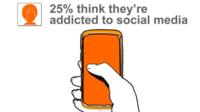14 October 2014
Last updated at 13:25
By Leo Kelion Technology desk editor The operators of a text-message-based system used to advise people about Ebola in Sierra Leone aim to extend it to seven other West African nations.
The facility allows the Red Cross and Red Crescent charities to send SMS messages to every switched-on handset in a specific area by drawing its shape on a computer-generated map.
It also automatically sends back appropriate replies to incoming texts.
The charities say they hope to complete the expansion within nine months.
However, they will first require the co-operation of local mobile networks and authorities.
"It's been doing an excellent job in Sierra Leone, sending out in the region of 2 million messages per month, helping the communities there to prepare themselves, try to avoid getting infected, and then if they do, to know what to do about it," explained Robin Burton from the International Federation of Red Cross and Red Crescent Societies (IFRC).
"Unlike TV and radio, if we send them a text message it's retained on the phone."
The seven countries set to get the Trilogy Emergency Relief Application (Tera) system are Benin, Togo, Ghana, Mali, Guinea-Bissau, Gambia and Burkina Faso.
Life-saving 'spam' Tera was initially developed in Haiti following the earthquake that struck the Caribbean country in 2010.
It was subsequently rolled out in Sierra Leone in 2013 after local network Airtel agreed to install the necessary equipment in the wake of the country's worst cholera outbreak in 40 years.
It works by allowing Tera's software to consult an operator's systems about which handsets are connected to cell towers in a selected area, and sends them a text without having to disclose the phone numbers involved to a human operator.
The kit is now being used to tackle the Ebola virus, which can cause death from multiple organ failure and dehydration. More than 4,000 people have been killed by the disease during the current epidemic in West Africa.
One expert said IFRC had a good chance of convincing the other nations to overcome any concerns they might have about joining the system.
"The thing operators might have a problem with is that they are basically being asked to spam millions of their customers, and people often object to that," said Ken Banks, an SMS expert who advises the UK's Department for International Development.
"When people in Haiti received messages asking them to donate blood that were blasted out willy-nilly some were not in a position to do so, and they found it annoying.
"But operators will find it hard to argue against helping in this particular case. No-one will want to be accused of blocking messages during an epidemic that could save people's lives, and the Red Cross probably carries enough weight as an organisation to get this done."
Staggered texts The IFRC has, however, taken steps to ensure Tera appears as "network friendly" as possible.
Individual subscribers can opt out of receiving the texts, and operators can apply their own exclusion lists.
In addition, it is deliberately designed to only send texts to powered-up handsets to avoid the build-up of millions of undelivered messages, which could put networks under strain.
Texts can also be staggered to prevent an overload, and the operators would retain the power to cut the service at any time.
"It's location sensitive," added Mr Burton.
"So, we only send the messages to the areas that are affected. If you get a message it is relevant to you, it's not just a piece of spam."
He added that the system was cheap to operate, and once installed could also be used to provide early warnings of natural disasters and obtain feedback about relief efforts.





